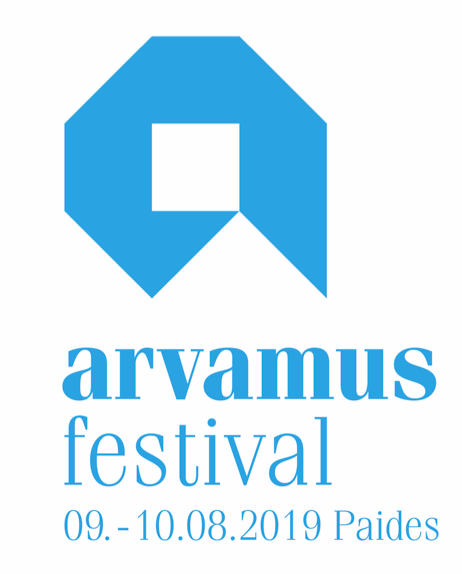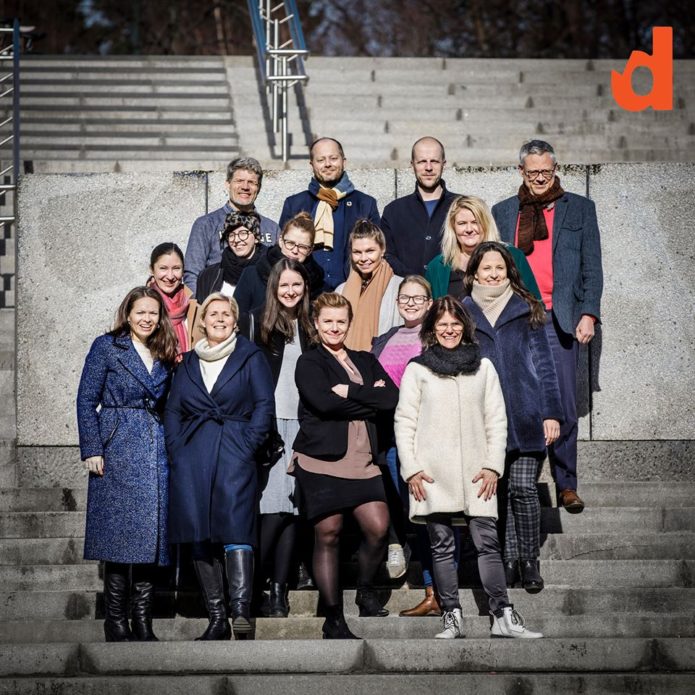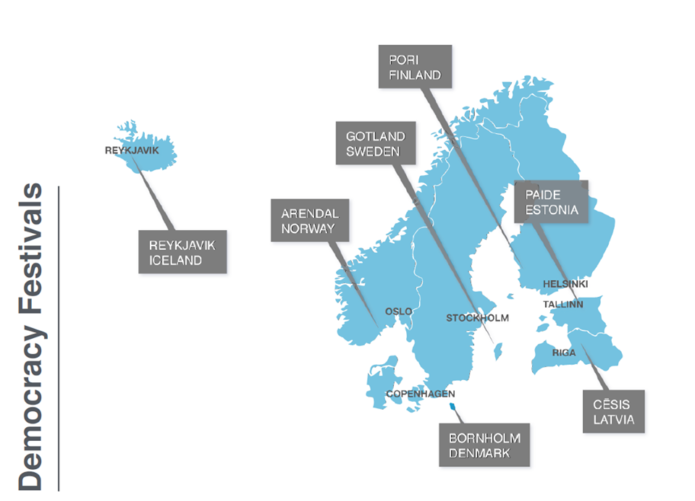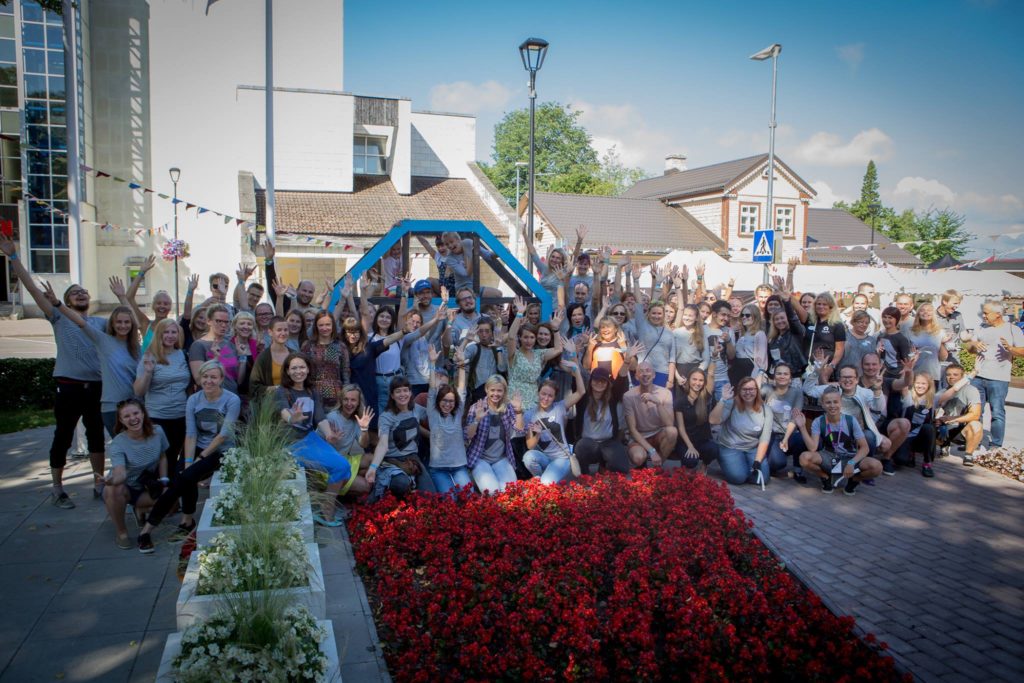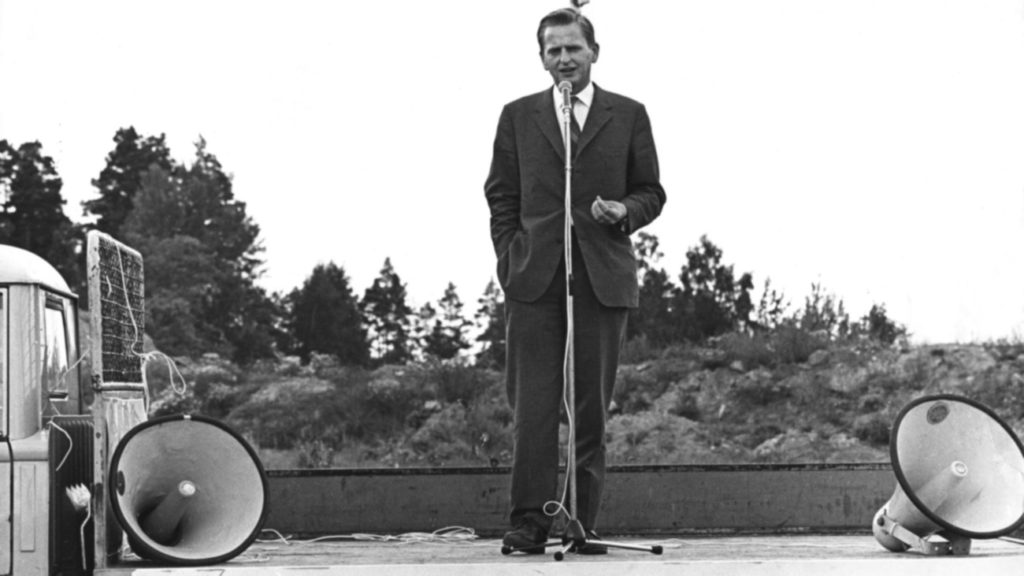Maarit Cimolonskas
Employee experience @Bigbank, volunteer @Arvamusfestival
Some time ago, we hosted a workshop in our office where about 20 people joined from the Government Office of Estonia, European Innovation Academy, Estonian Unemployment Insurance Fund, the digital agency Optimist Digital, Estonian Ministry of the Interior, Estonian Green Movement, an educational independent body Archimedes, Estonian Patients Association and some other organisations.
All of these people are among the organisers of the Opinion festival. Together, we had a communications and marketing workshop since they are leading the communication initiatives for the upcoming 5th Opinion Festival in Estonia.
Opinion what?
Once a year, on the second weekend in August, a tiny city in Estonia called Paide changes into a festival ground which brings about 10,000 people together. It’s not a regular festival but one of a kind, called the Opinion Festival — https://2019.arvamusfestival.ee/en/. It provides an open platform for alert and active people who can discuss issues which are important to them and relevant topics on society. We call it a self-evolving community-wide festival open to everyone.
‘Community-wide’ means that the festival welcomes representatives and interest groups from all walks of life. ‘Self-evolving’ refers to organisations and associations bringing issues to the table with using their own resources. ‘Open to everyone’ means that anyone interested in sharing his or her ideas is welcome to take part. It also means that the festival is free of charge for participants.
What it means in reality is that during those two days in Paide, more than 170 discussions will be held. Think of it as organising 170 internal trainings.
Different NGOs, public & private organisations come together, think and work together to make all of these discussions happen. Everyone in Estonia can propose topics they would like to discuss about and the preparation phase starts from February already. The festival happens for the fifth time this year, and we have more and more experienced organisations, who think beyond panel discussions and are eager to engage the audience through various fun, weird, serious, difficult and completely out-of-box-like methods.
Another thing, we neither think nor talk of the festival audience but the discourse has evolved into festival participants. The people who attend are participating more and more and have given feedback that this is how they want it to be as well. People join the Opinion Festival to exchange opinions, gain new knowledge and fresh ideas, meet new people and enjoy the vibe. Below is a little example of how it all comes together with hundreds of volunteers.
What’s in it for me
I have been a volunteer since 2002, so I like to call myself a senior volunteer already. Back in high school it just started out as a way to attend to events I didn’t have money to attend otherwise. I used to volunteer for years for the Black Nights Film festival PÖFF and for the yearly jazz music festival Jazzkaar. The tickets were expensive and my family didn’t have the means to send me on concert after concert, so I found another way.
Years went by and I started getting knowledge in other topics than smiling and checking the tickets, so while at my Erasmus year in Paris, I helped to organise a summer theatre festival. Later, back in Estonia, I decided to put my social media skills into practice and helped out a Pelgulinna maternity hospital’s support foundation in their social media marketing.
After some time in Bigbank with internal communications, I decided that it’s time to put the skills I have learned here, into practice somewhere else too. This is how I ended up with the Opinion festival last year, helping their team of about 300 people with managing internal communications.
I was just thinking the other day, that voting is very natural for me, but I want to do more. I want to feel good about myself that I have taken steps to improve the Estonian society. Today, I can’t be sure that something changes because of it, but I’m at least trying and might see the results in the future.
Thus, being a volunteer is a question of mindset for me. If I have something to share and I see that there is a place that needs it, then why not to share it?
I gave an interview once about being a volunteer and the first question I was asked was: “Why don’t you ask money for sharing your knowledge?”. Well, I don’t believe in asking money about everything you have. By sharing, you are actually learning and this way the learning never stops.
I have developed so much because of these broad experiences with different people from different fields, with different knowledge and experiences. I decided that while volunteering at the Opinion festival, I would like to change the field annually. So last year I was dealing with coaching the team leaders and sharing information to all volunteers last year. This year, I’m helping to curate three areas at the festival, which means I dig deeper with the organisations who organise these discussions:
- The area of science which tackles on topics like Industry 4.0, biologic city, the role of future technologies in improving societies and other cool stuff
- The area of prejudices which covers topics like why don’t people dance in the church, why Estonians are afraid of feminism, if the soviet people have space in Estonia and other cool stuff
- The area of Müürileht and Vikerkaar which broadens minds about if there is life after capitalism, the Estonian protest culture, what is the Estonian conservative culture about and other cool stuff
I feel how dealing with the people, the organisations, the topics I’m regularly not dealing with really broadens my mindset. This is my goal, I love it and it’s fun too!
Other similar festivals around Europe
Actually, the Opinion Festival was inspired by the 49-year-old Almedalsveckan festival in Sweden, as well as other similar events in Finland, Norway and Denmark and was held for the first time in Estonia in 2013. We, in turn, have inspired Latvia too, who organised a similar festival this year for the third time this year. Below is a little guide about these festivals around Northern Europe.
Danish Folkemødet started in 2011 with a goal to strengthen democracy and dialogue in Denmark, and soon became one of the landmark events in Danish society. Over the last six years, the number of events and participants has grown by more than ten times. Last year’s festival featured 3000 events and gathered 100 000 participants, and this is not the limit. This year, it happened on June 15–18.
Lampa – Latvia
LAMPA (Sarunu festivāls LAMPA) is organised in the picturesque city of Cesis since 2015. LAMPA celebrates democratic culture and calls for active citizenship. It is a place to broaden one’s mind in an ever-changing world. This year it took place on June 30-July 1.
Arendalsuka is organised since 2012 and has so far been a huge and it is considered as the most important meeting place between leaders in politics and business, the media and the public. This forum strengthens the belief in poltical debate. This year it will take place on August 14–19.
The history of Almedalen goes back to 1968, when the Swedish politician Olof Palme held speeches in Almedalen during the summertime. The first official Almedalen Week took place in 1982. With over 30 000 participants, this has now grown to one of the most important forums in Sweden to debate and discuss on current social issues. This year it took place on July 02–09.
SuomiAreena week in Pori started back in 2006 and now welcomes about 60 000 participants to discuss on politics, society, culture and sports. This year it took place on July 10–14. http://suomiareena.fi/in-english (you can find the video on the link)
Held since 2015, Fundur fólksins brings together people who wish to discuss issues of society and ensures that all voices are heard. This year it will take place on September 8–9.
For now, I invite you all to check the Opinion festival out on August 11–12 — just come with an open mind and see where it takes you!
Check here to see all discussions held in English: https://www.facebook.com/events/1759788734318427
